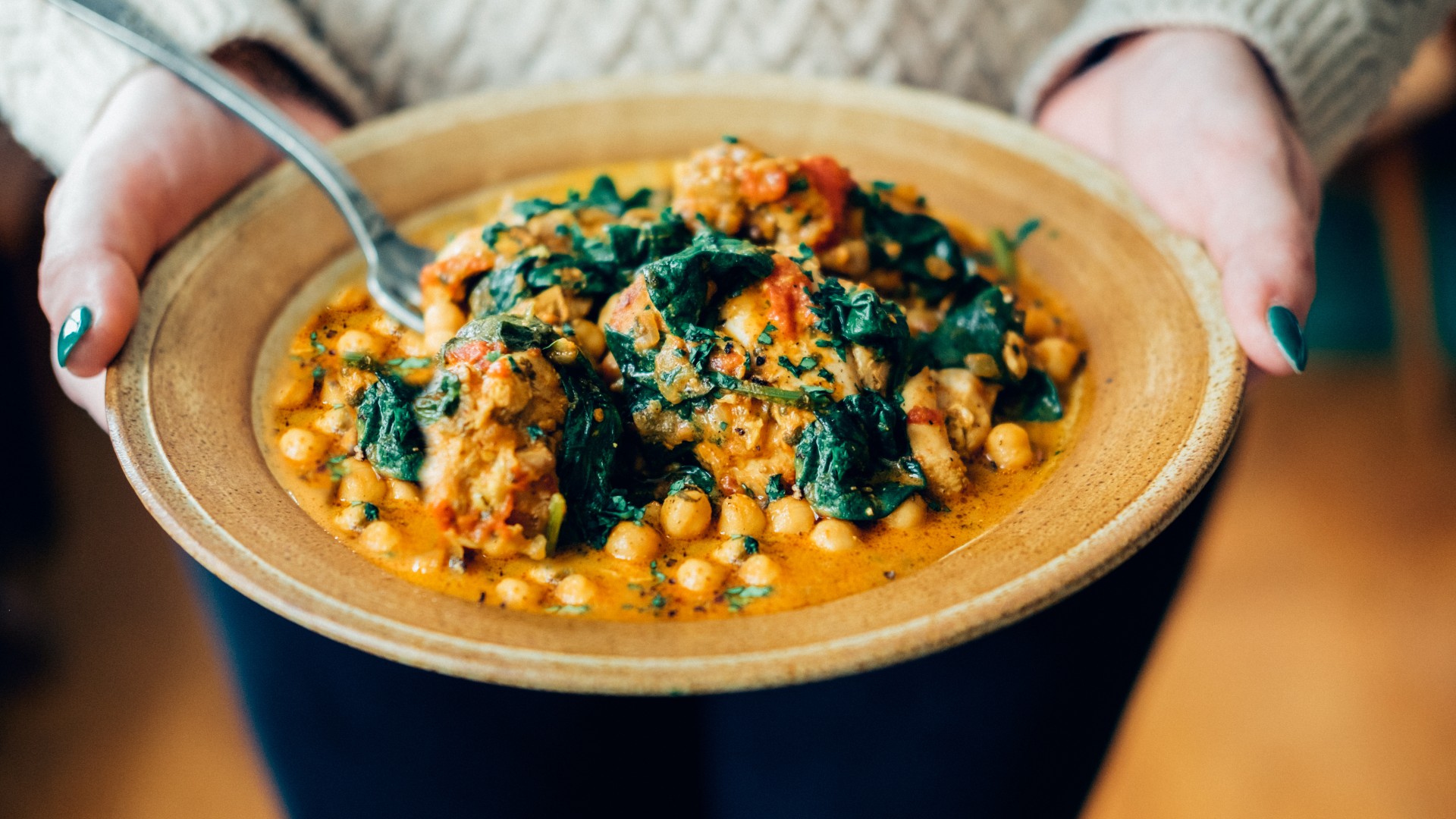Going vegetarian? The dietary choice may be influenced by your genes.
A new analysis of more than 330,000 genomes has revealed specific gene variants that may be associated with vegetarianism.
Being vegetarian may be (partly) in your genes, a new study suggests.
By analyzing the genomes of more than 335,000 people and using questionnaires to assess their meat intake, scientists have identified one point in the human genome — rs72884519 on chromosome 18 — that is significantly associated with following a vegetarian diet. In a separate analysis, the researchers identified three gene variants — NPC1, RMC1, and RIOK3 — clustered in that same region that are linked to vegetarianism, as well as another 31 genes elsewhere in the genetic code that may have a "possible role" in this dietary choice.
It is unclear how these genes may influence people's choice to be vegetarian or the underlying physiology behind it. However, the findings, published Wednesday (Oct. 4) in the journal PLOS One, provide a taste of how genetics might partially determine the food we put on our plates.
"These results open the door for future studies that could determine which gene variants play an important role in vegetarianism and how they influence dietary choices," lead study author Dr. Nabeel Yaseen, a professor of pathology at the Northwestern University Feinberg School of Medicine, told Live Science in an email.
Related: What's the difference between veganism vs vegetarianism
People choose to be vegetarian for many reasons, including religion, culture, ethics and environmental and health concerns. What people decide to eat is shaped not only by personal taste but also by metabolism and how different foods affect the body, all of which are influenced by genetics. Although studies have shown that genes can impact the foods we like, the possible ties between genetics and vegetarianism are poorly understood.
In the new study, scientists compared the genomes of 5,325 vegetarians with those of 329,455 non-vegetarians using data from the U.K. Biobank, a large repository of health and genetic data from adults in the U.K. To define these categories, the researchers used two questionnaires that asked people to recount their food intake over the past year and over 24-hour periods. Vegetarians were defined as people who avoided eating animal flesh or products derived from it, such as lard.
Get the world’s most fascinating discoveries delivered straight to your inbox.
The study didn't directly examine how the gene variants linked to vegetarianism could influence people's dietary decisions, but the authors have a few hypotheses.
For example, several of the genes, including NPC1 and RMC1, are involved in lipid, or fat metabolism and brain function. This "raises the possibility that the ability to pursue a vegetarian diet may be influenced by lipid metabolism and its effects on the brain," Yaseen told Live Science. For example, NPC1 is involved in trafficking large lipids called complex lipids into cells, and these large fats are crucial for the development and function of the nervous system, the authors wrote.
The study does have a few important caveats. The authors only looked at one population of white people in the U.K., and they relied on participants self-reporting what they recalled eating. This study design may impact how well the results apply to other populations and undermine the reliability of the findings.
Joanne Cole, an assistant professor of biomedical informatics at the University of Colorado who was not involved in the research, told Live Science that she and her team also found that the rs72884519 genomic region is linked to meat consumption, in that gene variants there seem associated with a person's liking for and intake of meat.
But she also pointed out that the new study found differences in lifestyle and environmental factors between vegetarians and meat-eaters — for example, vegetarians were more likely to be women, younger, have a lower socioeconomic status and a lower body mass index (BMI), an indirect measure of body fat. So it's possible that, rather than influencing people's food choices directly, the potential vegetarian-associated genes flagged in the study instead exert their effects indirectly through these other factors, Cole said.
More work is needed to truly understand how this genomic region is linked to dietary intake, Cole added, and Yaseen noted the same:
"We hope that future research will shed further light on the physiology of vegetarianism and enable us to provide better, personalized dietary recommendations and produce better meat substitutes," he told Live Science.

Emily is a health news writer based in London, United Kingdom. She holds a bachelor's degree in biology from Durham University and a master's degree in clinical and therapeutic neuroscience from Oxford University. She has worked in science communication, medical writing and as a local news reporter while undertaking NCTJ journalism training with News Associates. In 2018, she was named one of MHP Communications' 30 journalists to watch under 30.



